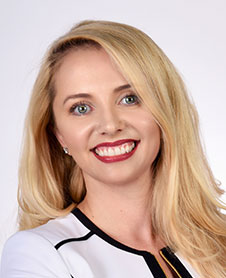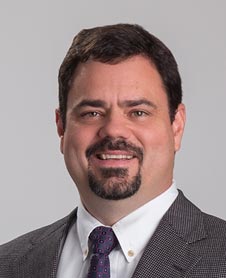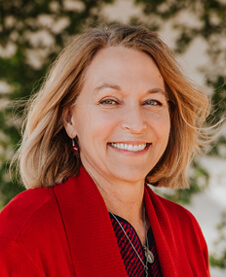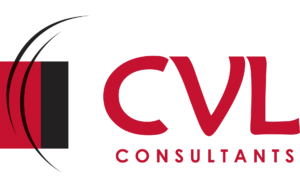CONTACT US
Tel: 602-264-6831
Fax: 602-264-0928
Tel: 602-264-6831
Fax: 602-264-0928
Coe & Van Loo Consultants, Inc. (CVL) is pleased to announce that Tracy Grunden has joined the CVL team as the Assistant Director of Water/Wastewater Department. Mr. Grunden has more than 26 years of experience in water and wastewater engineering, comprising planning, modeling, condition assessment, design, project management, construction inspection, and construction management. He has delivered water/wastewater projects for clients throughout Arizona; including City of Phoenix, City of Tempe, City of Mesa, City of Peoria, City of Goodyear, City of Yuma, Town of Carefree, Town of Gilbert, and Town of Queen Creek.
He has also provided outstanding service to EPCOR Water, Arizona State University, ADOT, Community Water Company, Salt River Project, Gila River Indian Community, Ak-Chin Indian Community, Rosemount Copper, Freeport-McMoRan, Roosevelt Irrigation District, Adaman IWDD, Luke AFB, Far West Water and Sewer and many private clients. Tracy is known for his commitment to the highest standards in customer care and performance, making him an ideal fit for CVL.
Mr. Hara has over 12 years of experience in consulting, project management, and account management experience in the energy efficiency, renewable energy, and energy capital infrastructure space. His engagements span from strategy to implementation, leading projects related to capital infrastructure, transmission and distribution, asset management, customer engagement, operating model, and energy efficiency programs at various utilities.
Mr. Hara has led new business development and account management efforts for public clients and private clients in the energy sector across the West Coast. Currently, Mr. Hara is leading the capital infrastructure development for a cutting-edge semi-conductor facility. In his free time, Paul likes to go on culinary adventures through new cities with his fiancée, when he isn’t cheering on the Dodgers. He also enjoys golfing and ocean fishing.
 Kristina Locke
Kristina LockeDirector of Business Development
University of Missouri
Kristina Locke obtained her BS in Journalism from University of Missouri. She has over 20 years of experience in marketing, branding, and business development achievements. She has assisted in acquiring numerous high-profile accounts, developed strategic marketing initiatives, and launched multi-media campaigns nationally and locally. Ms. Locke leads CVL’s business development efforts, drives brand recognition, and business expansion.
For the past 7 years, she concentrated her efforts on the civil engineering industry where she was successful in developing and implementing new marketing initiatives to break into dozens of highly competitive sectors to increase profit gains. Ms. Locke continues to pursue new business opportunities in both the public and private sectors.
Ms. Locke is active in the community as the Co-Chair of the Valley Partnership Events Committee, Co-Chair of the Programs Committee for Arizona Public Works Association, and Chair of AAED’s Charity Luncheon.
 Richard Alcocer
Richard AlcocerLand Surveying Director
Richard Alcocer, RLS, became a Land Surveying Director in March 2017, previously a Project Manager in the survey department. He has over 37 years of experience in boundary surveying, topography, ALTA, and construction staking. Mr. Alcocer oversees 10 survey crews and directs his crews to perform with the upmost integrity and to always have the client’s best interest at heart.
What professional accomplishments give you the most pride and what makes that accomplishment so rewarding?
My most rewarding accomplishment was to follow in my father’s footsteps and become a Registered Land Surveyor.
If you could have one super power what would it be and why?
I already have one- being a great role model to my children, nieces, and nephews.
 Jason Kelley, PE, CFM, LEED AP
Jason Kelley, PE, CFM, LEED APStormwater Department Manager
BS Civil Engineering
Arizona State University
Jason Kelley, PE, obtained his BS in Civil Engineering from Arizona State University. He has approximately 23 years of public works experience and two years of private development experience focused on floodplain and watershed management, regulatory approvals, hydrologic study and drainage design. Mr. Kelley is licensed in both Arizona and California. He joined CVL in 2015. His specialties include drainage master planning and the evaluation and design of drainage infrastructure using the newest technologies, such as two-dimensional modeling.
What professional accomplishments give you the most pride and what makes those accomplishments so rewarding?
I’ve been fortunate throughout my career to have both expert mentors and challenging projects that helped to develop my technical skills. The most rewarding part has been mentoring and supporting others in their careers.
If you could have one super power what would it be and why?
Ability to fly. Could avoid traffic…
 Carolyn Both, CPA
Carolyn Both, CPAChief Financial Officer
BS Accounting
Arizona State University</span?
Ms. Both obtained her BS in Accounting from Arizona State University. Ms. Both is proud to be an Arizona native and has seen firsthand the positive impact of CVL’s exceptional planning and design talent as our state has changed and grown. Ms. Both joined CVL’s team in 1985 and has been her home ever since. In addition to directing CVL’s Financial Accounting and Reporting, she provides Human Resources leadership.
What professional accomplishments give you the most pride and what makes those accomplishments so rewarding?
I am most thankful for CVL’s culture, which allowed me to raise a family while continuing my professional growth. My goal is to provide the same friendly environment to CVL’s employees and provide stability for their families.
If you could have one super power what would it be and why?
Genius mind…I’d like to earn an engineering degree and pass the P.E. test in one month, and then try that part of our business.

Ritz-Carlton Residences Dubbed Largest Real Estate Event In Arizona
Image courtesy of Mason Architects
Offering a “resort within a resort” experience, Coe & Van Loo Consultants (CVL) provided comprehensive engineering services for Paradise Valley’s Ritz-Carlton master plan to design a new generation of luxury resorts combined with fully-serviced homes and high-end shopping all in one location. Valued at $2 billion, the Ritz-Carlton Resort and Ritz-Carlton Residences project consists of 105 acres with 200 rooms surrounded by 91 single-level villas and 45 single-family homes.
In addition to providing Survey, Land Planning, and Civil Engineering services, CVL mastered complex water, roadway, and utility challenges to bring forward top-tier amenities for both resort visitors and residence owners. They will enjoy North America’s longest pool on record, world-class spa, modern health and fitness center to name just a few. Additionally, CVL’s landscape architecture design includes a citrus orchard and garden with seasonal produce for on-site restaurants and lush walking paths. Jan Bracamonte, spokesperson for Five Star Development, describes the villas as “the most sophisticated, full service resort real estate offering in Arizona to date.”
Feed My Starving Children
We were honored to participate in a volunteer services with Feed My Starving Children.
Our wonderful staff at CVL packed 109 boxes at the charity location in Mesa that will be delivered to children in underdeveloped countries. As usual, we had an enjoyable time.
Feed My Starving Children has seven packing locations in Minnesota and Arizona where volunteers pack food that is delivered to hungry children in 81 countries around the world.
Resort Development in Paradise Valley
Image courtesy of Allen + Philp Architects + Interiors
Phoenix has seen five years of increasing demand for luxury hospitality with no increase in supply. Mountain Shadows and Ritz Carlton resorts aim to raise the bar on high-end hospitality developments in Paradise Valley with a boutique and ultra-luxe experience. Taking trends further will be the coveted single-family residential homes near both properties where families will have access to all the resort amenities, previously reserved for resort clients. CVL is serving as Civil Engineer and Landscape Architect for all phrases of these five star developments. Read the full article here.
Phoenix MS150 Bike Event 2016
At CVL, we are just as passionate about helping communities as much as we are about building them. This year, the avid cyclists in our group participated in the annual 150 mile Bike MS event in Phoenix, helping to raise more funds for people living with Multiple Sclerosis than any other charity.
CVL Named Civil Engineer Firm for McDowell Corridor Project
Image courtesy of Nelsen Partners
The long standing, vacant Scottsdale Auto Mall will soon be replaced with a urban-type of mixed-use neighborhood with nine structures comprising of residential spaces, underground parking, restaurant, hotel, business offices, and retail buildings. Although in the preliminary stages, SunChase Holdings has named CVL as the civil engineering firm for the development and construction of this 27-acre project, dubbed Scottsdale Entrada. Read the full article here.